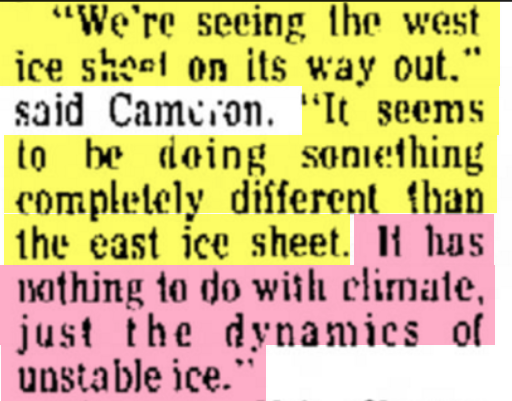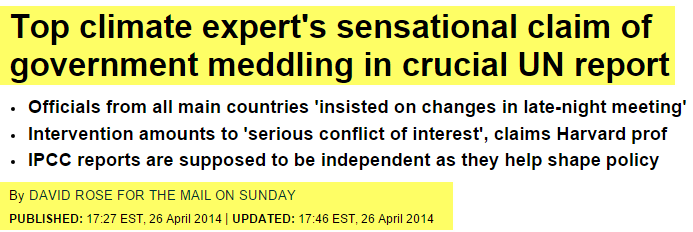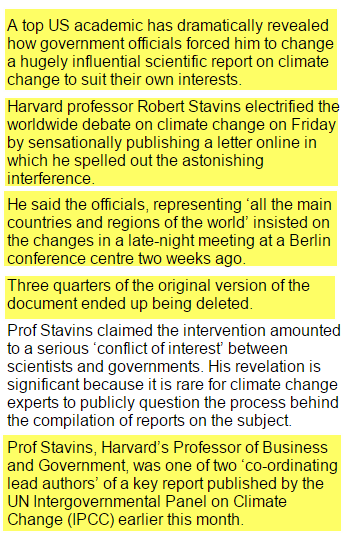This is a long one, but worth keeping.
from Zerohedge
http://www.zerohedge.com/news/2015-12-07/george-orwell-edward-bernays-perpetual-war
Another horrific act of terror, another shrill chorus calls the faithful to war. It’s a recurring phenomenon in this early Twenty-first Century. The horrible news crashes from the heavens like a meteor, violently jolting us from the Saint Vitus Dance of our produce-consume existence. Our screens with all the answers flash between splattered blood on the pavement and the victims’ smiling faces as they were in life. From the Middle East we hear little and see less of the shattered lives on the receiving end of our vengeance. Like giving a fifth of bourbon to a drunk prostrate on the pavement, our leaders advocate more slaughter as the solution to the world’s problems. Mass civilian casualties is the global order of the day, the constant in our lives.
Orwell’s essay on Perpetual War in “1984” is currently enjoying a revival in certain circles. Through the novel’s mysterious bogey man, Emmanuel Goldstein, Orwell avers that technological innovations have brought industry to such a level of efficiency that material abundance and leisure should be attainable to all. Widespread material comfort and spare time would allow the populace to develop intellectually and spiritually, and thus to achieve a kind of universal enlightenment. Orwell argues that with such leisure-based understanding, humanity would question the necessity for hierarchy and begin to threaten the arrangement that so benefits those at society’s pinnacle.
During the first half of the Twentieth Century those atop “1984”’s pyramid perceived this eventuality and identified a leisured, enlightened public as a threat to social stability and their dominant position. The ruling caste devised Perpetual War as a way of keeping industrial production humming. Orwell plainly states, “The primary aim of modern warfare… is to use up the products of the machine without raising the general standard of living.” Rather than distribute the fruits of modern industry to the masses, produced goods are blown up and sent to the bottom of the ocean, thus artificially maintaining scarcity. According to Orwell, both the terror and material scarcity attendant to such engineered, continuous conflict deprives humanity of the security and leisure necessary for the political awareness necessary to question society’s hierarchical arrangement. Perpetual War keeps the population struggling to eke out its meager existence and thus remain both ignorant and docile.
The hypothesis of Perpetual War has been blowing around the sentient class for decades. Author Chalmers Johnson, said it was the failed promise of the promised peace dividend at the end of the Cold War that lead him to question motives behind the American Empire. Going back further, Col. Fletcher Prouty argued that the Vietnam War was engineered as early as 1945 to be a profit-making, interminable war. Vietnam, Korea, The Cold War, The War on Drugs, and now The Global War on Terror were all virtually unending with exorbitant price tags, driving nations–particularly our own–deeply into debt. Our leaders constantly cry public poverty when it comes to rebuilding our infrastructure or keeping the lights on in our cities, yet there’s always funds for new carpet bombing, furtive drone campaigns, or boots on the ground abroad.
Orwell’s hypothesis of Perpetual War as a bulwark to maintain the status quo works quite well, up to a point. What he did not seem to recognize was the far more effective silencing mechanism, not of material scarcity, but of consumer abundance. Long before Orwell envisioned his “1984” nightmare, a small group of virtually anonymous men devised and implemented consumerism in a mere decade, the 1920’s.
With industrial Europe transformed into a battlefield during World War I, America became the manufacturing base for the Western Powers. After the war, U.S. industrialists and Wall Street bankers feared the loss of demand for elevated wartime capacity would plunge the national economy into ruin. At that time the American public purchased items based on need. Paul Mazur of Lehman Brothers decided to change that, and with Edward Bernays’ adroit effort in public relations, they conceived and gave birth to the American Consumer by creating, molding, and then catering to the individual’s desires.
The nephew of Sigmund Freud, Bernays was fascinated with his uncle’s work on the human subconscious and its applicability to commerce. For example, when tobacco industry executives came to him with the problem that half the population wouldn’t buy cigarettes, Bernays devised a scheme making it acceptable for women to smoke. Basing his research on psychoanalysis, he identified cigarettes as a phallic symbol. Bernays arranged for a group of young socialites to interrupt the New York Easter Day Parade by lighting up, declaring them “Torches of Freedom” for the whirring cameras and reporters. By portraying smoking as an act of women’s liberation, Bernays turned the tide, and Big Tobacco soon captured the other half of American market. Bernays and his cohorts continually repeated such manipulative feats for the next fifty years, and in the process supplanted the American citizen with the American consumer.
The ramifications of the shift away from a needs-based culture cannot be overestimated. Acting on rational thought, the citizen who bought only what he needed merely did his job to sustain life and got on with his day. But desires emanate from emotion rather than reason, so the consumer driven by impulse becomes a puppet in the hands of those controlling the media. Fearing the herd, the powers that be have instilled in us a false belief in our own significance and made us slaves to our ethereal, artificial and irrational whims.
The individual consumed and lead by base impulses ceases to think rationally, much less critically. Most importantly he sees himself, if he ever looks at himself beyond the bathroom mirror, as the embodiment of “product choice,” rather than the citizen of a republic obligated to being informed and participating in the public debate. The consciousness of the modern consumer is a passive, empty vessel, defined by corporate brands rather than a more autonomous self.
An entire culture of such unquestioning individuals consumed by their own fickle desire forms a docile, in-cohesive herd of chattel, incapable of debate, unifying, or demanding a redress of grievances. “We are silenced by our greed,” as Christopher Hedges so succinctly defines it.
A lively, engaged electorate might steady power’s hand, but the U.S. electorate, as well as the rest of Western society, have been distracted and in the end lobotomized by an ever-increasing workload, fueled by the febrile chase of gewgaws and numbing mass entertainment. As Orwell observed in “1984,” modern technological marvels should liberate humanity to reach a higher form of living, but instead have been bent by men in the shadows to enslave us. One of those men, Edward Bernays, brazenly opened his book, “Propaganda,” with the declaration:
The conscious and intelligent manipulation of the organized habits and opinions of the masses is an important element in democratic society. Those who manipulate this unseen mechanism of society constitute an invisible government which is the true ruling power of our country. We are governed, our minds molded, our tastes formed, our ideas suggested, largely by men we have never heard of.
Bernays and his cohorts manipulated the American electorate and shaped public opinion. Men like spymaster Allan Dulles, and the apostles of University of Chicago academic, Leo Strauss, ran foreign policy from behind the curtain and engineered decades of unending wars. All the while Americans have stood by idly cowed and duped into approving the global carnage, as those on top amassed more power.
The owners of humanity’s wealth have always held undue sway over government. At times during the Twentieth Century it seemed as if Western society might reach a more sustainable balance between top and bottom, but towards the new millennium the scales tipped radically toward the top. Transfer of production to the virtual slave nations of Asia, as well as public and private skyrocketing debt worked to shift earlier material gains away from the masses to society’s owners. Consumerism is the opiate to calm us while the doctors in the shadows kill us with endless global war and its concomitant debt.
Those on high profit immensely from the mayhem which embroils the globe. How we wound up killing in these far places and what exactly the policy is are questions we rarely ask. The carnage in the Middle East–much of it engineered by the Western powers–has been a bonanza for the for-profit Military Industrial Complex and the bankers enriched by the ballooning debt it generates. Every cruise missile or drone strike forges a new link in the public’s chains of debt-servitude. We should be asking, “Is there another way?” and collectively making life difficult for public officials who cannot answer.









